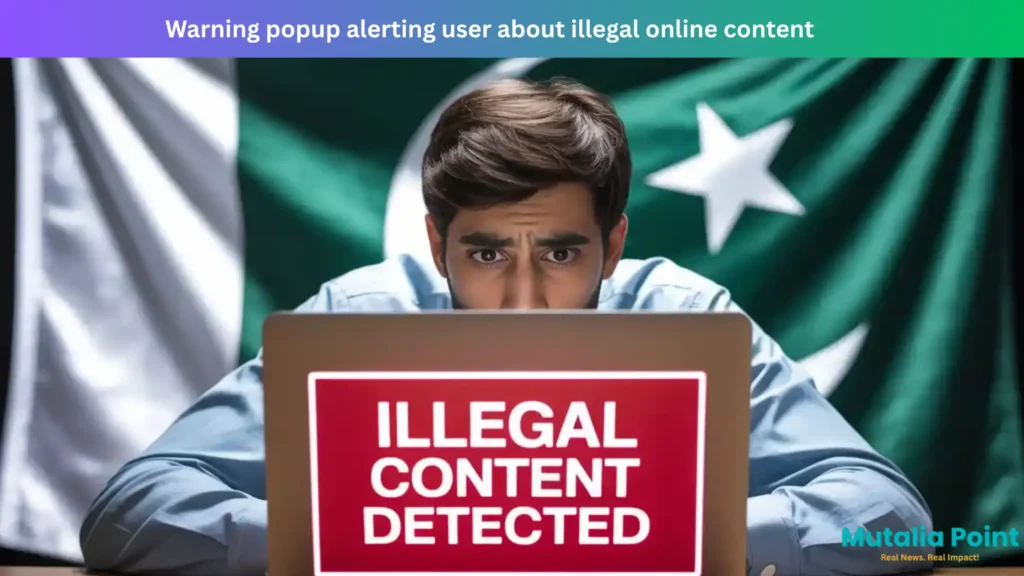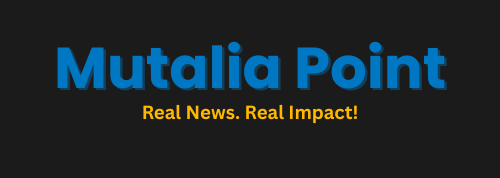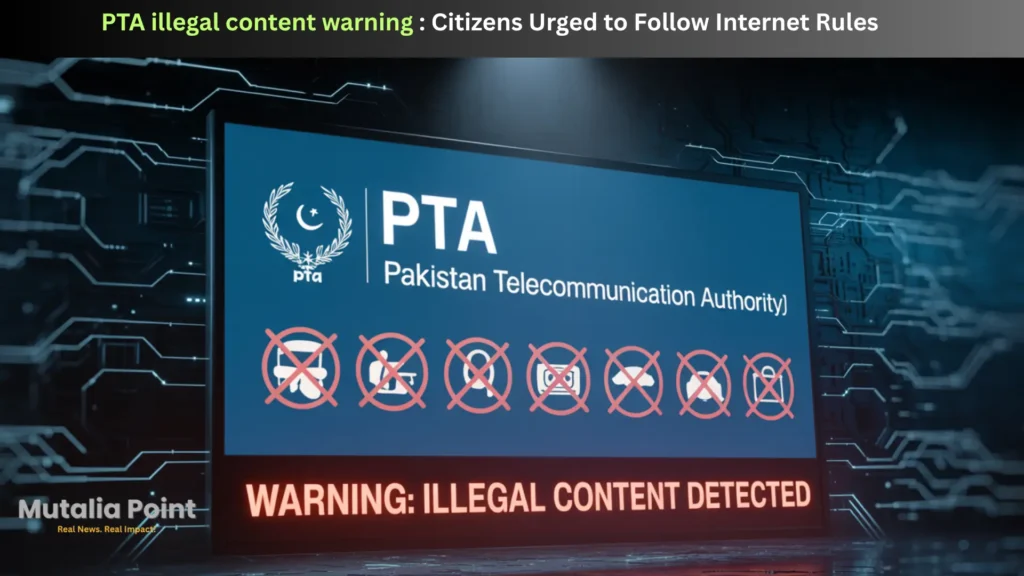PTA warns against illegal online content sharing as concerns rise over the misuse of digital platforms in Pakistan. The Pakistan Telecommunication Authority (PTA) has issued a strict warning urging all internet users to follow national online content rules. The authority has observed a rapid increase in the spread of harmful, unverified, and offensive material through social media and messaging apps. This public alert aims to raise awareness and prevent citizens from violating the country’s cyber laws, which can result in heavy fines, account bans, or even imprisonment.
In its statement, the PTA warned that anyone found involved in creating, sharing, or forwarding illegal content could face serious consequences under Pakistan’s Prevention of Electronic Crimes Act (PECA) 2016. These include penalties such as heavy fines, bans, and even jail time. According to the authority, people often unknowingly become part of illegal activity just by sharing unverified posts or videos. The PTA clarified that even forwarding such content, without creating it, still makes the user liable under the law.

PTA Warns Against Illegal Online Content Sharing on Social Media Platforms
PTA warns against illegal online content sharing on social media platforms such as Facebook, TikTok, Instagram, and X (formerly Twitter). The authority noted that most violations occur when users share or repost content without verifying its source or legality. This includes fake news, hate speech, religiously sensitive posts, and explicit videos. PTA emphasized that even forwarding such content makes the user legally responsible under Pakistan’s cyber laws. Influencers, content creators, and even private group admins are being advised to monitor posts carefully to avoid legal trouble. The goal is to promote safer digital behavior and reduce harmful trends spreading online.
The PTA has been receiving increasing numbers of public complaints about offensive or unlawful material being circulated online. This includes hate speech, religiously sensitive posts, fake news, explicit videos, and content that invades personal privacy. Many of these posts quickly go viral, creating panic, confusion, or harming reputations—sometimes permanently.
The telecom authority is now working with other government bodies, especially the Federal Investigation Agency (FIA), to identify offenders. Using digital tracking tools, these agencies are able to trace the origin and spread of illegal content. In several cases, action has already been taken, including blocking social media accounts, issuing warnings, and launching investigations.
To increase public awareness, the PTA has also reminded all internet users that freedom of speech has limits, especially when content disrupts national security, religious harmony, or public morals. Social media influencers, content creators, and group admins are being asked to moderate their platforms strictly and remove any suspicious or harmful posts immediately.
Responsible Digital Behavior and Legal Monitoring Intensifies
With Pakistan’s digital audience rapidly growing, especially among teenagers and young adults, the PTA’s warning is a timely reminder. The internet is a powerful tool for education, business, and communication—but when misused, it can spread misinformation or incite unrest. The authority has called for responsible digital citizenship, encouraging users to think before they post or share anything online.Lorem ipsum dolor sit amet, consectetur adipiscing elit. Ut elit tellus, luctus nec ullamcorper mattis, pulvinar dapibus leo.

The PTA’s campaign aims to reduce cases where people unintentionally get involved in legal trouble by forwarding sensitive materials without understanding the consequences. This is particularly important for students, young internet users, and those active in group chats or public discussion pages.
Additionally, the PTA has launched a complaint portal where any citizen can report offensive or unlawful content anonymously. Instead of sharing such material further, users are urged to report it through official channels to stop its spread. Thousands of posts have already been removed or blocked through this process. In some cases, even global platforms like YouTube and Meta (Facebook & Instagram) were asked to remove content targeting Pakistani laws and values.
To support this initiative, the authority has shared some simple safety guidelines for the public:
Always verify information before sharing it.
Avoid posting content that is religiously or politically sensitive.
Do not forward unverified videos or voice notes.
Stay away from explicit, violent, or hateful content.
Encourage others to report illegal activity instead of spreading it.
The PTA is also calling on schools and parents to educate children about the importance of online safety. With children as young as 10 owning smartphones, early digital education is critical. Families are advised to set rules for screen time, monitor app usage, and encourage open conversations about what’s appropriate to view or share online.
Pakistan’s digital space is becoming more regulated, and rightly so. While internet access is a fundamental right, responsibility must come with freedom. Everyone—whether a student, teacher, influencer, or professional—must understand the weight of a single share or post. In a connected world, even a casual comment can lead to unexpected consequences.
The PTA’s action against illegal content is part of its broader mission to ensure that Pakistan’s internet environment is safe, respectful, and compliant with local laws. Users who continue to violate the rules may face bans or more serious legal proceedings. It is now more important than ever to act with caution, verify facts, and be aware of your legal responsibilities as an internet user.
As Pakistan moves forward in its digital journey, major developments like the Pakistan Lunar Mission under SUPARCO by 2035 also highlight the country’s growing focus on space and technology, making responsible online behavior more important than ever.















